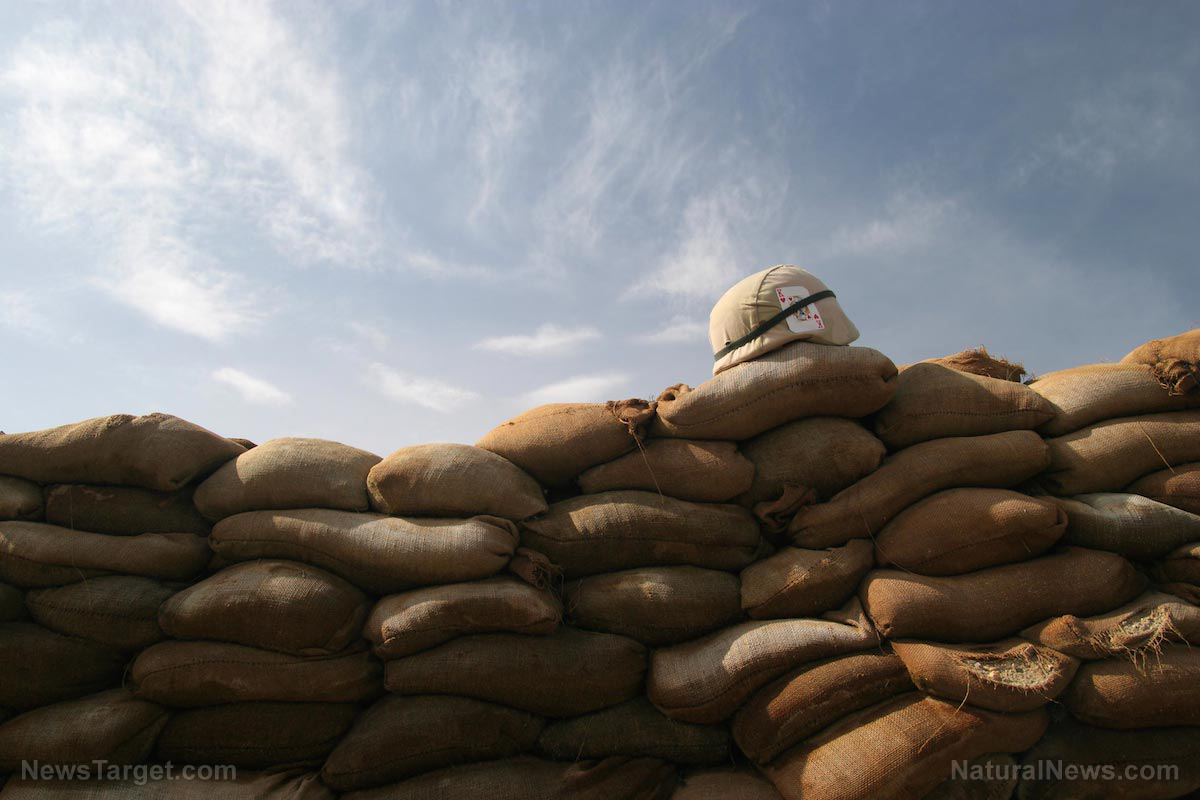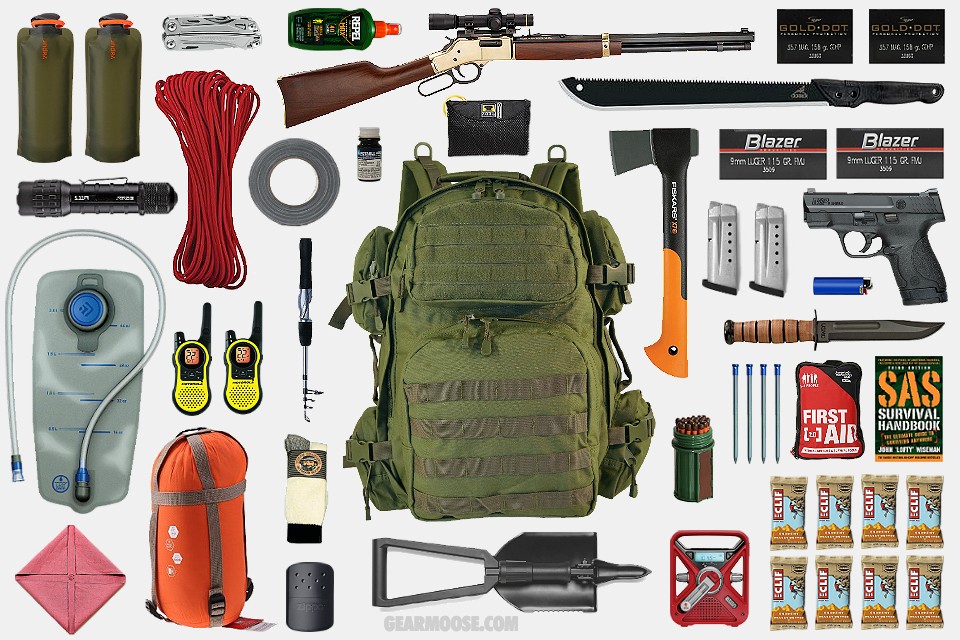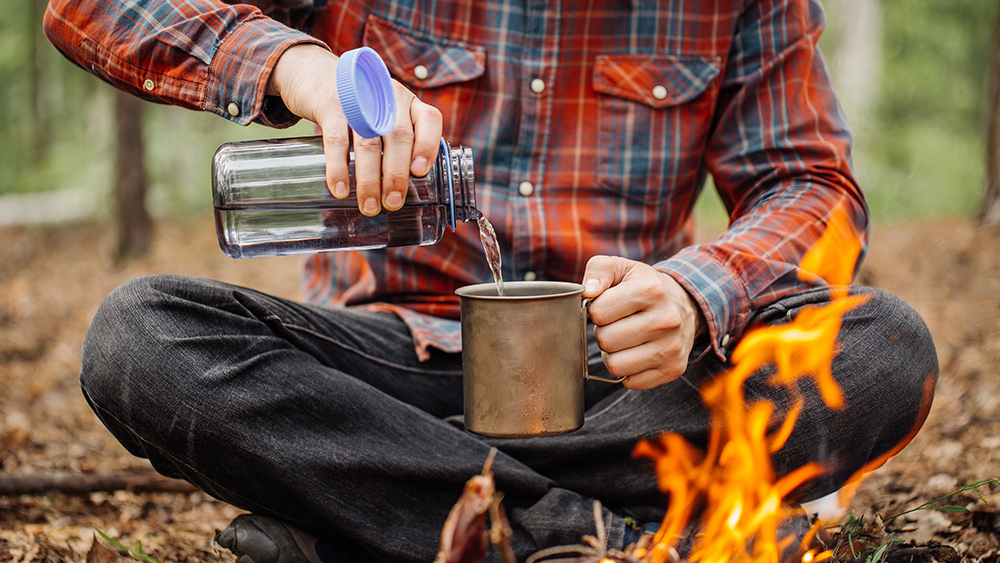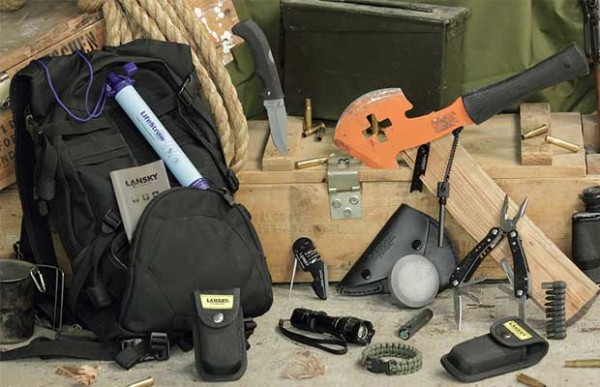From home defense to storage: 10 Prepping and survival uses for sandbags
01/08/2021 / By Virgilio Marin

Sandbags do not look like they have much value. After all, they’re just sacks filled to the hilt with sand. But these humble sacks are actually incredibly useful for preppers. They can be used for home defense, flood protection and even storage.
Take a look at these 10 ingenious and life-saving uses for sandbags: (h/t to TheSurvivalistBlog.net)
1. Gunfire protection
Sandbags provide excellent protection against gunfire. Though they degrade after multiple hits, they are remarkably resilient against small arms fire. They can even provide you with some degree of protection against explosives.
2. Flood protection
Sandbags can be used to block and redirect floodwater away from your homestead. But doing so requires a ton of labor and plenty of time especially if you’re looking to buttress a wide area. Try asking for help as you would need to fill several sandbags.
3. Construction
Sandbags are sturdy construction components for making all kinds of above and below-ground shelters. They can support a roof, resist strong wind and provide a strong foundation to a structure.
Take note that using sandbags for construction does require technical expertise. Your sandbag walls and columns will have to be reinforced with other materials, and putting them together will require construction prowess.
4. Getting tire grip
If you’re driving a rear-wheel vehicle and have gotten stuck in a rut, adding weight to the rear can improve the tires’ bite into a slick surface. Sandbags are excellent for this. You don’t need to keep sandbags inside your car, you just need to keep sacks and fill them when the occasion arises. You can always find a ready supply of sand, soil or even gravel to fill the sacks.
5. General storage
Whether you’re foraging food or hunting for spare bits, the sacks used for sandbags are some of the best storage bags to have around during a survival situation. You can even rig up a carry handle or shoulder straps if the sacks have their own drawstrings. Keep these sacks in your bug-out bag in case you find something of interest on your way. (Related: These important items deserve a place in every bug-out bag.)
6. Wet storage
Sandbag sacks can also be used for storing wet objects like muddy boots. Plastic sacks are especially well suited to this task since they are far less permeable than canvas bags. If you’re using plastic sandbag sacks, you can use them as emergency trash bags too.
7. Weights
Being fit is important for preppers and survivalists. After all, how can you defend yourself well without an able body? Thankfully, you can continue body-building even after SHTF with sandbags. Fill these sacks to make dumbbells or dangle them from a sturdy pole or bar to make a barbell.
8. Shooting rest
Sandbags make an excellent shooting rest to place your shotgun on. Firm but malleable, they cradle the gun at optimal contact points and conform to its contact surface, allowing for an adjustable yet steady rest at the fore and aft of the gun.
9. Improvised tarp
Tarps are usually used to make a temporary survival shelter. If these not are available, sandbags are a great alternative. Cut sandbags along their seams and tape or sew them together to make a tarp. Be sure to use water-resistant sandbags if you’re building a shelter.
10. Other survival essentials
Sandbags can be stripped down to produce all kinds of survival essentials. The string can be harvested for light-duty lashings, fishing line and snare cord while the cloth burns off thick, black smoke useful for signaling. A square of the material can patch a tent, bandage a wound or be used for a cold compress, among other things.
Sandbags are a nifty solution if you need cheap but flexible solutions for various survival hurdles. They may look drab with their off-white canvas cloth, but they’re just as useful as any survival gear.
Sources include:
Tagged Under: bug out, flood protection, gunfire protection, Home Defense, preparedness, prepper, prepping, sandbags, SHTF, Storage, survival, survival essentials, survivalist
RECENT NEWS & ARTICLES
COPYRIGHT © 2017 DISASTER NEWS





















